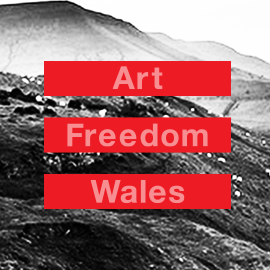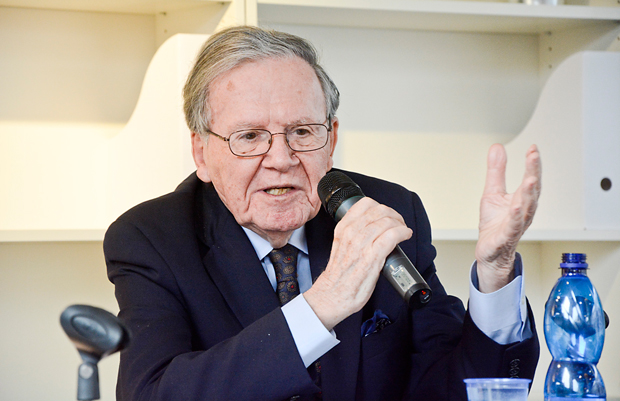Index relies entirely on the support of donors and readers to do its work.
Help us keep amplifying censored voices today.
 Is the space for artistic freedom of expression expanding or shrinking?
Is the space for artistic freedom of expression expanding or shrinking?
ArtFreedomWales is part of Index on Censorship’s programme taking stock of the support for artistic expression across the arts sector in the UK and ArtFreedomWales focuses on the specific issues impacting on Welsh arts and culture.
Join artists from all fields and working at all levels in Wales for an afternoon of participatory debate and open, honest discussion.
Confirmed speakers include:
WHEN: Thursday 27th November, 1pm – 6pm
WHERE: Chapter Arts Centre – Cardiff (Map/directions)
TICKETS: £5 contribution to costs, available from Chapter Arts Centre Box Office.
#ArtFreedomWales
ArtFreedomWales: Google Hangouts With Artists From Across Wales
In the lead up to this event, we’re hosting online discussions with artists from across Wales. The first, asking whether Wales is a centre for artistic free expression featured Tim Price, Lisa Jen, Kathryn Gray and Leah Crossley. Watch it here.
The second, exploring the situation for artists working in Welsh featured Bethan Jones Parry, Arwel Gruffydd, Bethan Marlow, Mari Emlyn and Iwan Williams. Watch it here.
Two further discussions will follow in late September and early October – check back here for details. Collectively, these discussions will inform the agenda for the #ArtFreedomWales symposium.
ArtFreedomWales: Why We Are Doing This.
“Freedom of expression is not self-perpetuating, but needs to be maintained by the constant vigilance of those who care about it.” Michael Scammell – Index on Censorship Magazine 1972
We believe that freedom of artistic expression lies at the heart of artistic practice. Support for artistic freedom allows the artist to push boundaries, to say what is not being said, to imagine the world differently, to act as critic and to speak truth to power. Artistic freedom of expression thrives on risk and experimentation, embracing controversy and diversity of opinion. And there is a vibrant and essential debate triggered by challenging art.
You only have to think of what happens to artists in societies that are not free… But even in countries where freedoms are upheld as a core principle, artistic freedoms are all too easily eroded by social, political and sometimes legal constraints.
ArtFreedom: The UK Programme so far.
In 2013 we held a conference in London ‘Taking the Offensive’ hosted by Jude Kelly at the Southbank Centre to identify and explore the social, political and legal controls that shape our cultural landscape. Nicholas Serota gave an insightful keynote speech and amongst the contributors were lawyer Anthony Julius, Professor Mona Sidiqui, Sir Hugh Orde (President of the Association of Chief Police Officers), Sally Tallant (CEO Liverpool Biennial) and Moira Sinclair (Executive Director of Arts Council England). You can read a report here.
In May 2014, we held a symposium in Belfast exploring these issues in Northern Ireland with playwright Martin Lynch giving an opening provocation to a morning of artist focused debate and discussion.
ArtFreedomWales is funded by Arts Council Wales as part of our UK wide programme looking at freedom of expression in the arts.
Why we are doing this programme
We believe that freedom of artistic expression lies at the heart of artistic practice and the debate about it needs to be kept live and abreast of changes in society.
Index on Censorship’s UK Programme
“Freedom of expression is not self-perpetuating, but needs to be maintained by the constant vigilance of those who care about it.” — Michael Scammell – Index on Censorship Magazine 1972
Support for artistic freedom allows the artist to push boundaries, to say what is not being said, imagine the world differently, act as critic and speak truth to power. Artistic freedom of expression thrives on risk and experimentation, embracing controversy and diversity of opinion and the debate and dialogue triggered by challenging art.
You only have to think of what happens to artists in societies that are unfree for this to be thrown into sharp relief.
But even in countries where freedoms are upheld as a core principle, artistic freedoms are all too easily eroded by social, political and sometimes legal constraints. ArtFreedomWales is part of a wider Index programme that is taking stock of the support for free expression across the arts sector in the UK, and asking is the space for artistic freedom of expression expanding or shrinking?
Last year we held a major conference at the Southbank Centre in London- Taking the Offensive which identified and debated the social, political or legal controls that shape the cultural landscape. Nicholas Serota, Director Tate, gave the key note speech and the conference discussed the triggers for and the prevalence of self-censorship across our cultural organisations and institutions. It also discussed how the sector could come together to reinforce support for artistic freedom in general and when controversy breaks in particular. (Read the report here.) In May, we held a symposium in Belfast exploring these issues in Northern Ireland.
We are currently running a programme called ArtFreedomWales — a series of online events culminating in a day-long conference in the autumn to explore the state of artistic freedom and practice in Wales. Supported by Arts Council Wales, the programme will bring together Welsh artists and activists to discuss the issues and begin mapping a plan for action. Watch the first online event here.

Peter Demetz (Photo: Prague Book Fair)
Emeritus Yale University professor and author Peter Demetz was awarded the Jiri (George) Theiner prize at the Prague Literary Festival this year.
George’s son Pavel, the prize organiser, said Demetz received the award because “all his life he has remained intellectually honest in his demystification of views which sometimes became popular such as the notion of magical Prague, rather stressing the reality of Czech history, as well as his life-long commitment to Czech literature in American and German environments and as translator of Frantisek Halas´ and Jiri Orten´s poetry”.
Theiner set up the prize in memory of his father’s work, as a former editor of Index on Censorship magazine he brought attention to Czech writing and writers during the communist era. He said: “Almost five years ago I discussed with the director of World of Books (Prague Book Fair), Dana Kalinova, the possibility of making this prize an important permanent fixture at the annual book fair. Looking back I realised that George Theiner´s reputation here was as solid as it was in other countries, despite the fact that he left in 1968.
The jury this year was chaired by Lenka Jungmannova (professor at the Institute of Czech Literature, Academy of Sciences), Martin Putna (literary historian, professor at Prague´s Charles University and critic), Jiri Gruntorad (guardian of the largest samizdat collection in central and eastern Europe, dissident persecuted in the 1970´s and 1980´s) and Ivan Biel (documentary film-maker and lecturer in Film Studies). Next year’s jury was also announced and will include Karel Schwarzenberg (a former Czech foreign minister, one of Havel´s closest aides and supporter of dissidents before 1989 whilst living in Austria), Michal Priban (academic at the Institute of Czech Literature, Academy of Sciences), Vladimír Pistorius (samizdat publisher who successfully made the transition into becoming a ´straight´ book publisher) and Jan Bednar (radio journalist and commentator, signatory of Charter 77, between 1985 and 1992 and who worked for the BBC in London).
Theiner said that they received between 35 and 60 nominations each year from all over the world. The criteria stated that the recipient (or organisation) had made a major long-term contribution to the promotion of Czech literature overseas, with an expectation that they have also made a contribution to freedom of speech and human rights in general. Other prize winners include Andrzej Jagodzinski, translator of Havel, Hrabal, Kundera, journalist as well as a leading member of the democratic opposition on Poland); Ruth Bondy (an Israeli of Czech origin, survivor of Auschwitz and Bergen-Belsen who worked as a journalist on the Hebrew daily Davar; and Paul Wilson (a Canadian who lived in Czechoslovakia as a young man before being thrown out in 1977 for collaborating with dissidents and, above all, the band Plastic Pepople of the Universe, translator of Skvorecky, Klima, Havel, Hrabal, radio producer, editor and writer).
Theiner said: “One of the most positive aspects that has come out of the activity surrounding the prize has been the link made between old and new Index on Censorship. It was a real joy to welcome to Prague at the first prize-giving the founding editor Michael Scammell along with some of his old colleagues such as Philip Spender, Haifaa Khalafallah and others. Four years later the present editor Rachael Jolley joined us and moderated a discussion following the award-giving ceremony on freedom after the fall of the Berlin Wall, a reflection on the democratisation of society and freedom of expression in literature and journalism. It´s great to see that the bridge-building that George Theiner was so adept at is still going strong.”
This article was published on May 22, 2014 at indexoncensorship.org
Nominations are now open for a writing award for people and organisations contributing to the profile of Czech literature around the world.
The award, set up to commemorate a former editor of Index on Censorship magazine, is presented at the Prague Book Fair in May. The prize was first awarded in 2011 with freedom of expression in mind, and is given to a person or an organisation outside of the Czech Republic contributing in a major way to the promotion and dissemination of Czech literature abroad. The winner is chosen by a five-person jury, and also receives a prize of £1000. Nominations close on 15 February.
World of Books, which runs the annual Prague Book Fair, set up the literary award to commemorate George (Jiri) Theiner. He found his niche in England as Index on Censorship’s deputy editor in the 1970s and, following Michael Scammell’s departure, as the editor in the 1980s. George was held in high regard by writers and poets in Czechoslovakia not least because he worked tirelessly to publicise their fate and their work through translation into English. They included Vaclav Havel, Ivan Klima, Ludvik Vaculik, Bohumil Hrabal and others post 1968, or poets such as Miroslav Holub and Antonin Bartusek pre 1968.
The first recipient of the prize was Andrzej Slawomir Jagodzinski, a prolific journalist and translator of Czech literature into Polish who, from 1976 onwards, was closely involved in the Polish and Czech democratic opposition. After the collapse of the totalitarian regimes in central and eastern Europe he became the director of the Polish Cultural Centre in Prague.
The 2012 prize winner Ruth Bondy is a representative of the Czechoslovak pre WWII generation of intellectual Jews who, like many others, was deported to Theresienstadt and subsequently to Auschwitz and, towards the end of the war, to Germany. She moved to Israel in 1948 and worked as a journalist on the Hebrew daily Davar. She taught journalism at the Tel Aviv University in the 1980s and 1990s. She has translated a diverse group of Czech authors into Hebrew (including Hasek and Hrabal) and written studies centred on the fate of Czech Jews during the Holocaust.
Last year the prize was received by Paul Wilson, a journalist, literary critic and translator of many of Vaclav Havel’s works into English. He was closely associated with the persecuted band Plastic People of the Universe, as a result was thrown out of Czechoslovakia in the early 1970s. He has remained a committed publicist of Czech causes and authors.